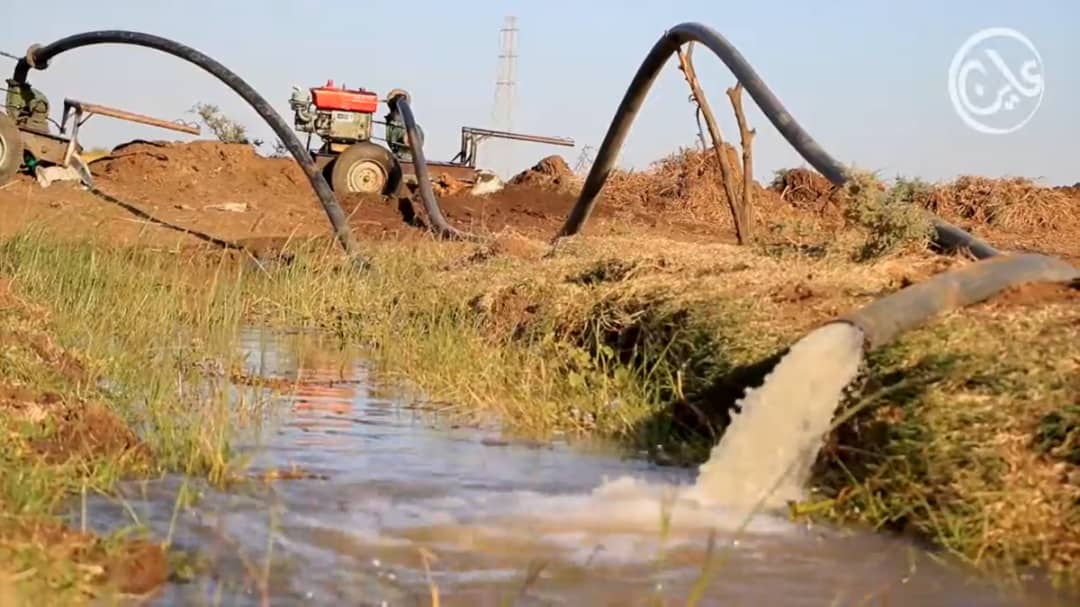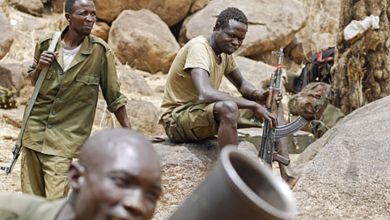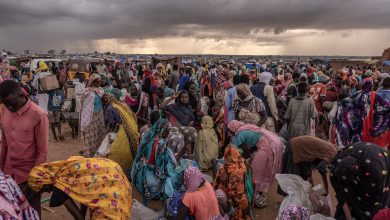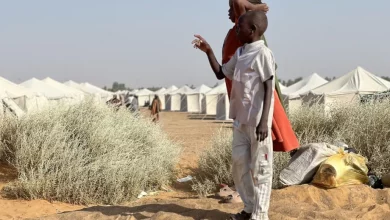Sudan: Pastoralists Pay a Heavy Price for War, Impacting the Lives of 7 Million People
Sudanese Media Forum

Sabah Mohamed Adam
Khartoum, June 26, 2025 – (Al-Alaq Press Services Center)
The livestock and pastoralist sector in Sudan is one of the country’s most vital and strategic industries, comprising around 120 million heads of livestock according to the Central Bank of Sudan’s 2016 statistics. About 7 million people depend directly or indirectly on it for their livelihoods. Despite its importance, the sector has long suffered from chronic neglect, further worsened by the ongoing war, climate change, and unsupportive government policies—even though it places little financial burden on the state, as it relies on natural grazing and water resources.
Persistent Marginalization and War’s Impact
A women’s rights expert working in the field stated that the war between the army and the Rapid Support Forces (RSF) did not create the pastoralist crisis but rather exacerbated long-standing, deep-rooted issues. The state has failed to provide even basic care such as vaccinations and veterinary services, forcing herders to seek immunizations in neighboring countries. Furthermore, international agreements—such as the African Union’s Transhumance Protocol—were implemented without adequate domestic guarantees for grazing and water, leaving the sector highly vulnerable. She added that negative perceptions of pastoralist groups, including accusations that some serve as “incubators” for the RSF, have further harmed Sudan’s pastoralist communities.
Loss of Grazing Land and Environmental Strains
In West Kordofan State, home to more than 23 million heads of livestock, industrial activities such as oil and gold exploration have shrunk grazing areas and disrupted watercourses. Trenches dug around oilfields have obstructed herd movements, leading to large-scale livestock deaths.
Worsening insecurity and tribal conflicts have brought transhumance to a halt, while clashes between southern tribes and herders, rising attacks on livestock, and killings of animals have confined herders and their herds to small northern areas. They now face increasing pressure from climate change, drought, water scarcity, and extreme heat.
Displacement and Shifts in Pastoral Activity
Owing to war in Darfur and Kordofan, many herders have fled to neighboring countries such as the Central African Republic, benefiting from Sudan’s signature of the Transhumance Protocol—an agreement entered into without planning for domestic grazing and supporting services like seed distribution and vaccination. In contrast, Sudanese pastoralists have found better access to pastures, education, and vaccinations in host countries than at home, highlighting the Sudanese state’s neglect.
Economic Marginalization
Pastoralists continue to suffer from the devaluation of their sector, as economic experts repeatedly call for the replacement of native breeds with foreign ones. Official discussions often focus narrowly on meat exports and slaughtering, neglecting infrastructure development and failing to collect accurate data on pastoralists’ lives and communities.
War’s Impact on Women in Pastoral Communities
Women in pastoral areas have been among the most severely affected, bearing the brunt of livestock losses and the fallout of war. Poverty and gender-based violence have risen sharply, while food insecurity and displacement have triggered new resource-related conflicts. Women now face increased domestic violence, child marriage, forced marriage, and even cases of suicide.
Many experience profound psychological trauma after losing sons, husbands, or brothers in the conflict, leaving them feeling abandoned and unsupported. This has led to widespread mental health crises in the absence of psychosocial and community support.
Decline in Reproductive Health Services
Maternal and child mortality rates have risen due to the collapse of medical care, especially as genetic diseases linked to consanguineous marriages become more prevalent.
Collapse of Education Among Nomads
Education for pastoralists’ children once relied on dormitory systems and a two-shift model (Groups A and B) that allowed continuity during transhumance. However, the policies of the al-Ingaz regime (1989–2019) dismantled these systems, shut down dormitories, and promoted the notion that education was unnecessary in favor of militarization. As a result, many children were left uneducated or recruited into armed groups, deepening marginalization and institutional alienation.
Foreign Investments and Sovereignty Challenges
With weak national policies, Sudan’s neighbors have begun investing in Sudanese livestock, exploiting its many byproducts—such as intestines used in industrial processes, horns turned into luxury buttons, and rennet for rare pharmaceuticals. This trend reflects Sudan’s loss of sovereignty over this strategic sector, which continues to suffer from systemic neglect, exclusion, and the exploitation of its communities in the war.
A Way Forward
Experts stress that Sudan must end the senseless war devastating this sector and rebuild it as a vital economic resource free from political stereotyping. Comprehensive institutional support is needed, including revitalizing seed centers and grazing lands along transhumance routes, expanding vaccination services, rehabilitating nomadic education, ensuring the right of pastoralist children to education, empowering women economically, and addressing the gender-based violence worsened by war.
Policies must also safeguard Sudan’s livestock wealth against unregulated foreign exploitation—a sector long plagued by institutional corruption. Only through such efforts, monitored by civil society, can Sudan repair the social fabric torn apart by war and exploitation, restoring the trust of pastoralist communities in Darfur and Kordofan in their state and its institutions.
The Sudanese Media Forum and its member organizations publish this report by Al-Alaq Press Services Center to highlight how war has deepened long-standing crises in Sudan’s livestock sector and the pastoralist communities that depend on it.




